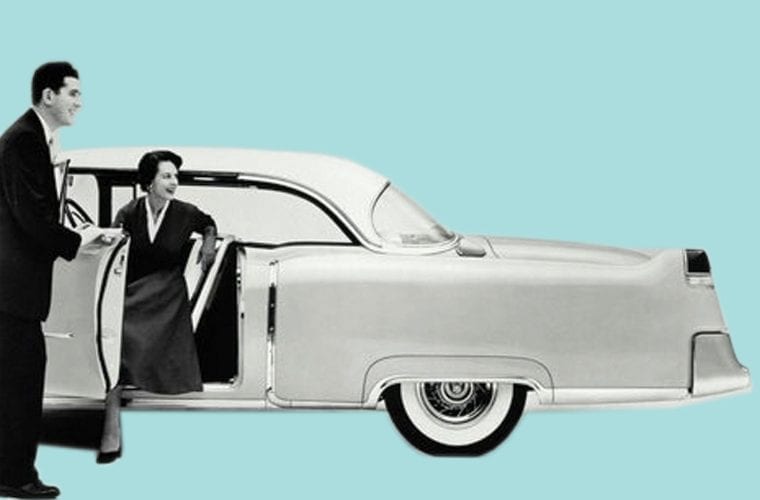Benevolent sexism represents the evaluation of gender that may appear subjectively positive but is actually damaging gender equality.
Benevolent sexism is not like the stereotypical, hostile sexism we usually hear about. It is a less hostile and friendly form of sexism that perpetuates the same gender notions and stereotypes about women. It works on a superb technique of complimenting a woman based on existing stereotypes rather than just simply insulting them. Quite difficult to understand, but here’s a catch: Those compliments that actually sound like compliments but don’t really feel like one; yes, that’s benevolent sexism.
Benevolent sexism: A less hostile and friendly form of sexism
For much of human history, male domination is so much part of our life that patriarchy was not even identified as a concept. The notion that male supremacy was normal, established a system of oppression, and was considered normal. To understand this, it’s important to understand the concept of ambivalent sexism.
Ambivalent sexism is an umbrella term for hostile and benevolent sexism. Gender attitudes, such as sexist attitudes, are often based on stereotypical beliefs about gender and can be perceived as a form of prejudice. Hostile sexism aims to preserve men’s dominance over women by underlining men’s power that reflects misogyny and is expressed through negative evaluations of women.
Hostile forms of sexism like domestic abuse and sexual violence often keep women in a subordinate position. This situation ends up fanning the flames and make women aware of their rights. Hostile sexism enrages people and creates a feeling of resentment that leads to a greater likelihood of patriarchy being dismantled. However, benevolent sexism is a subtle form of sexism and is sometimes seen in a positive way by most women (including feminists).
Many women end up romanticising benevolent sexism as they see it as a sign of love and affection. It is recognised as part of men’s protective nature and often ends up being taken as a chivalrous behaviour. Benevolent sexism seems to be a harmless form of sexism to most women and therefore, gets ignored frequently.
Can sexism in the name of chivalry be ignored?
Have you ever faced a situation that seems complimentary, but somehow you still feel offensive? If a statement despite being nice and pleasant causes unease? You need to stop and think. These compliments are not only stereotypically gendered but end up patronising women just to impose restrictions later.
It is necessary for us to understand that the F-word and the idea of feminism itself is limited by certain stereotypes. We internalize ideas from society, where we inevitably see the parallel universe of men and women that runs together but never coincides. Women are conditioned to buy benevolent sexism in two ways:
Firstly, this less hostile form of sexism makes women feel flattered and pampered. This in turn allows her to think that she can take advantage of the discrimination between the two genders in our society. Secondly, some women do not speak up against this friendly sexism as they do not want to question the patriarchal oppression present in our society that indirectly points out the masculinity of a man.
Believe it or not, but many researches and surveys have concluded that women are attracted to ‘benevolently sexist man’. A study has revealed that women are attracted to a male romantic partner who shows benevolent sexist attitude because these kinds of men are perceived to be more willing to be protective, providing, and committed to them, which are important traits which a woman look for in a prospective mate, and this in turn, makes him more attractive.
How benevolent sexism hurts men and women both?
Benevolent sexism is efficient at insulting both men and women. It’s not just the women but men also face it. Let me give you an example to create a better understanding. Have you ever heard somebody saying, Wow! It’s great, you are a man and you know how to cook. I guess we have not only heard this statement often but have also used it several times, without even understanding the depth of these words- man, cook, etc.
The ideation of traditional gender roles where women are “naturally” more kind, emotional, and compassionate and men are “naturally” more rational, less emotional, and tougher (mentally and physically) are the reasons behind our consumption of benevolent sexism.
The role of benevolent sexism in gender inequality
Though benevolent sexism is not taken up seriously but it is as harmful as hostile sexism. This concept has been prevalent since time immemorable but was actually termed as “Benevolent sexism” in 1996 by Susan Fiske and Peter Glick in opposition to hostile sexism, which is open and obvious discrimination on the basis of gender.
Benevolent sexism is more deeply rooted than hostile sexism in our society. We regularly see its examples but ignore them vehemently. Women holding a smaller number of positions in government, in courts, in businesses, and being paid less than their male counterparts are all just an illustration of what benevolent sexism looks like.
The reinforcement of the idea that women are soft, delicate, and needs protection creates an inequality which indeed should be recognised and fought against. This inequality in the form of protection and affection suppresses women in society and therefore we need to learn to identify these biased statements and make sure that we do not use them in our day-to-day conversations.
Ladies, Beware of the compliments!
Benevolent sexism is more or less likely exhibited in our daily lives. So here are some of the examples of compliments (sexist remarks) that we hear on regular basis:
- Wow, you know so much about sports as a girl!
- You are not like other girls at all. Girl, you are different!
- You are such a delicate flower. You sit comfortably I’ll do it for you.
- You should know how to cook, after all, you are a girl.
- For a woman, you are really focussed on your career- it’s so great.

